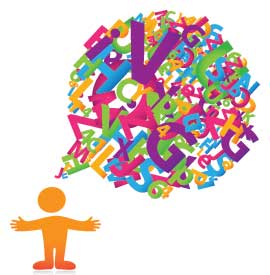Completion requirements
View
Long-Term Memory—Overview
 Recalling or retrieving information from long-term memory
is an important part of cognition. Assuming that the information is in memory, the trick is to retrieve it when it is needed. We have all had the experience of trying to recall information that we are aware that we know, and being frustrated by our
inability to do so. Or worse yet, we keep recalling something we know is incorrect. Word-finding can be a particular challenge for individuals with certain chronic disabilities.
Recalling or retrieving information from long-term memory
is an important part of cognition. Assuming that the information is in memory, the trick is to retrieve it when it is needed. We have all had the experience of trying to recall information that we are aware that we know, and being frustrated by our
inability to do so. Or worse yet, we keep recalling something we know is incorrect. Word-finding can be a particular challenge for individuals with certain chronic disabilities.
Caregiver Strategies
 Practice and the use of memory aids can keep the “memory
muscles” active and improve their functioning.
Practice and the use of memory aids can keep the “memory
muscles” active and improve their functioning.
- Provide strategies to help the individual with word-finding (e.g., run through the alphabet until the person finds the letter the word likely starts with, ask how many syllables it has, or if it sounds like another word.)
- When the individual has difficulty recalling a word or fact, it may be helpful to set the problem aside and do something relaxing. Often the missing information will spontaneously come to mind.
- Play word games together, such as Scrabble or solving anagrams.
- Find crossword puzzles your loved one can do comfortably or solve crosswords together.
- Encourage reminiscing as a way to keep personal memories active.
- Watch documentary or nature shows together and discuss interesting points.
- When individuals cannot recall what they were doing (e.g., why they entered a room), it can be helpful to return to where they were before, as something in that location may remind them of their task.
- Keep a written list of where important items are kept in the home (e.g., emergency and other important phone numbers are posted by the telephone; medications are located in medicine cabinet).
Last modified: Wednesday, April 27, 2022, 7:41 AM